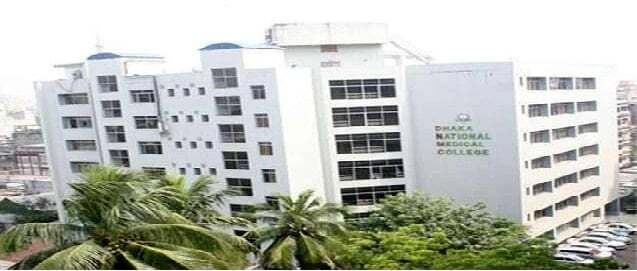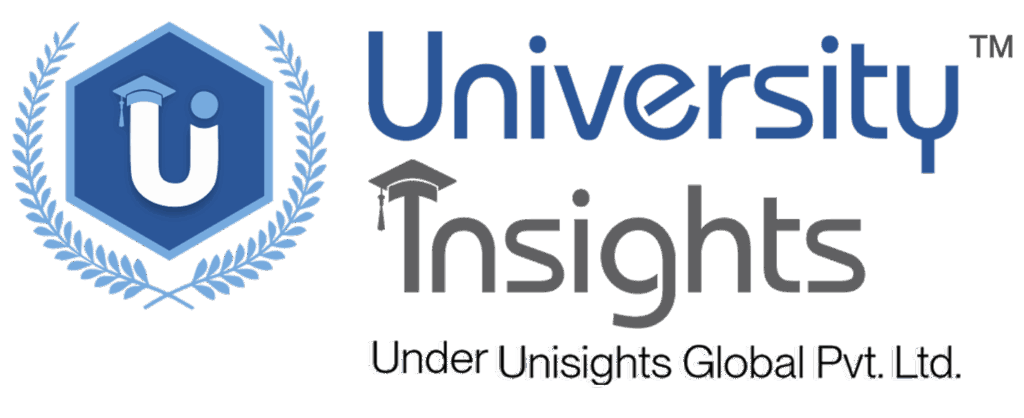Study MBBS in Malta 2025 – Admission, Tuition Fee, Eligibility Criterion, Scholarships, and Top Medical Colleges
MBBS in Malta presents Indian students with a unique chance to earn an internationally recognised MBBS abroad degree in an English-speaking EU nation whose healthcare system is modelled on the UK NHS. Delivered through the Queen Mary University of London-Malta Campus and complemented by clinical rotations at Mater Dei Hospital, MBBS in Malta for Indian Students blends UK-validated curricula, small-group teaching, and direct pathways to PLAB/USMLE or UK Foundation Programme. Although the MBBS in Malta Fees average ₹80 lakh – ₹1 crore for the five-year course, graduates receive a QMUL (UK) degree, enjoy FMGE/NExT pass rates above 60 %, and can progress seamlessly to postgraduate training across Europe or the Gulf. This guide explains NEET + UCAT entry routes, scholarship options, part-time work rules, visa timelines, and how University Insights secures conditional offers at the top medical universities in Malta for the 2025-26 intake.
About Malta
| Category | Details |
|---|---|
| Capital | Valletta |
| Official Language | Maltese, English |
| Currency | Euro (EUR) |
| Number of Universities | 2 Main Medical Universities |
| Average Tuition Fees for MBBS | €18,000 – €22,000 per year (Approx. ₹16 lakhs – ₹20 lakhs per year) |
| Cost of Living in Malta | Approx. €800 – €1,200 per month (Approx. ₹70,000 – ₹1,05,000 per month) |
| Minimum and Maximum Temperature | 12°C (Winter) – 30°C (Summer) |
| Exchange Rates to INR | 1 EUR ≈ ₹88 |
| Climate | Mediterranean Climate: Hot, Dry Summers and Mild, Wet Winters |
Cultural Insights and Geographical Overview of MBBS in Malta
Malta is a picturesque island nation in the Mediterranean Sea known for its rich cultural heritage and diverse historical background. Studying MBBS in Malta allows international students to experience a blend of European and Mediterranean cultures, with Malta offering excellent living standards. The temperature range in Malta varies throughout the year, with dry summers and mild winters, making it a comfortable destination for students pursuing medical studies. The island of Malta is not only known for its stunning architecture but also as a hub for quality medical education, attracting students from various parts of the world. Malta is home to some of the top medical schools in Malta, providing students with the highest quality education and a supportive learning environment.
The Educational System to Study MBBS in Malta 2025
The educational system in Malta for medical studies is designed to meet European Union standards, ensuring a well-structured MBBS program. The MBBS course in Malta typically spans 5 years, with an additional 1-year internship at medical schools in Malta like the University of Malta. Students must fulfill admission requirements such as having a strong academic background in science subjects. The structure of the MBBS program in Malta includes modules in basic sciences, clinical training, and research opportunities. Malta offers a favorable student-teacher ratio, allowing students to gain hands-on experience in medical practices. Students should make sure to prepare their application process for MBBS carefully to secure a spot. The malta medical council recognizes degrees obtained here, providing a solid foundation for students pursuing a medical career globally.
Want To Study MBBS in Malta?
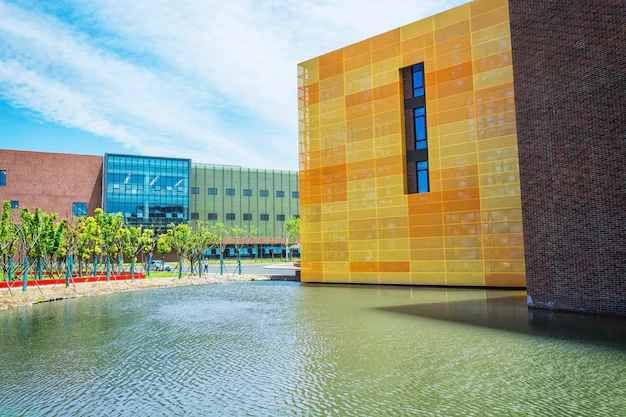
Why Study MBBS in Malta 2025-26?
Malta is an ideal destination to study MBBS due to its globally recognized medical programs and affordable tuition fee. The MBBS course in Malta is designed according to European Union standards, ensuring high-quality education. Malta offers a safe and student-friendly environment, making it easier for international and Indian students to adapt. The cost of living in Malta is relatively reasonable compared to other European nations, allowing students to manage their expenses. Additionally, Malta is home to top medical universities in Malta, such as the University of Malta, providing excellent opportunities for career growth after graduation.
Affordable Tuition Fee for MBBS Course in Malta
- Malta offers excellent options for students seeking a quality MBBS degree at a relatively lower cost compared to other European destinations.
- The tuition fee for MBBS in Malta 2025 ranges from €20,000 to €30,000 per year, depending on the medical college chosen, such as the University of Malta or the American University of Malta.
- This affordable tuition fee makes Malta a choice for Indian students who are looking for an international MBBS program without the high financial burden.
Globally Recognized MBBS Program
- Malta provides a globally recognized MBBS program accredited by the Malta Medical Council and recognized by various international bodies.
- Students pursuing medical studies in Malta receive training aligned with European Union standards, allowing them to practice in several countries after graduation.
- The MBBS course in Malta is designed to meet international standards, ensuring students gain both theoretical knowledge and practical skills.
Cultural Adaptation for Indian Students Studying MBBS in Malta
- Malta for Indian students is a welcoming destination due to its diverse culture and rich heritage, making it easier for Indian students 2025 to adapt.
- The island of Malta boasts a blend of Mediterranean and European cultures, offering a vibrant student life.
- Students must engage in various cultural events and activities, which help them integrate better into the Malta medical education system and study environment.
Advanced Medical Education in Malta
- The field of medicine in Malta is around advanced technologies and modern medical practices.
- Medical universities of Malta, including the University of Malta, use state-of-the-art facilities for clinical training and research, offering students an edge in medical studies.
- Malta is the island where students from various countries converge, providing a diverse learning environment with access to global medical knowledge.
Safe and Student-Friendly Environment in Malta
- Malta offers a safe environment for international students, with a low crime rate and a friendly atmosphere.
- The cost of living in Malta is manageable, with expenses for accommodation, food, and transportation being relatively low for students pursuing an MBBS course in Malta.
- The university of Malta and other institutions provide extensive support services, making it easier for students to settle and focus on their studies.
Want To Study MBBS in Malta?
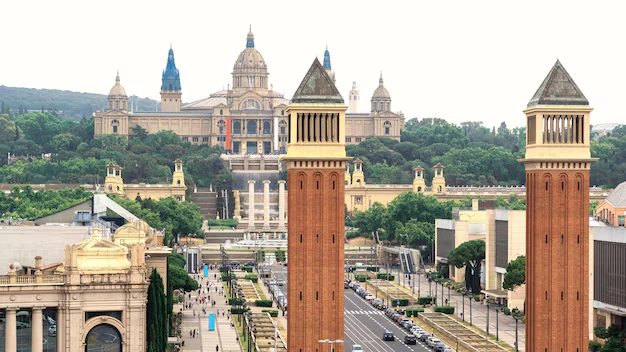
Quick Highlights About MBBS in Malta
| Category | Details |
|---|---|
| Official Language | Maltese, English |
| Number of Medical Universities | 2 Top Universities (University of Malta, American University of Malta) |
| Average Tuition Fees for MBBS | €18,000 – €22,000 per year (Approx. ₹16 lakhs – ₹20 lakhs per year) |
| Cost of Living in Malta | Approx. €800 – €1,200 per month (Approx. ₹70,000 – ₹1,05,000 per month) |
| Course Duration | 5 Years + 1 Year Internship |
| Intake | September/October |
| Eligibility Criteria | 10+2 with Physics, Chemistry, Biology; English Proficiency Test (IELTS/TOEFL) |
| NEET Qualification | Mandatory for Indian students |
| Medium of Teaching | English |
| Recognition | WHO, NMC, ECFMG, FAIMER |
| Top Medical Colleges | University of Malta, American University of Malta |
Want To Study MBBS in Malta?
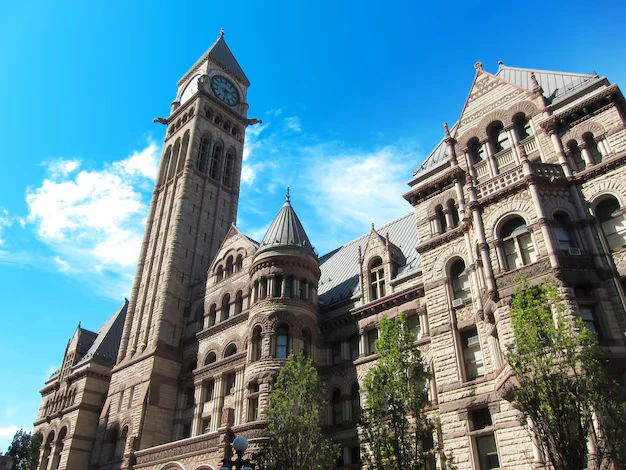
Study MBBS in Malta for Indian Students 2025-26
Studying MBBS in Malta is an appealing choice for Indian students seeking high-quality medical education. Malta offers a structured MBBS program with advanced medical training and clinical exposure, ideal for students looking for global recognition of their medical degree. The program in Malta follows the European standards and provides opportunities for clinical rotations in affiliated hospitals. With the University of Malta and other renowned medical universities, students benefit from a student-friendly environment, affordable cost of living, and an enriching cultural experience. Malta is around a 5-year MBBS program with an additional internship year for hands-on training.
MBBS Admission in Malta
- Eligibility criteria include completing 10+2 with Physics, Chemistry, and Biology and a valid NEET score.
- Students must apply through the university’s official website and provide required documents like academic transcripts and passport copies.
- Admission to MBBS in Malta often involves an interview process to assess the candidate’s proficiency in English and motivation for a medical career.
- Indian students need to secure a student visa to pursue their studies in Malta.
Cost of Studying MBBS in Malta
- Tuition fees for the MBBS course in Malta range between €18,000 to €27,000 per year.
- Cost of living in Malta is estimated to be around €8,000 to €10,000 annually, covering accommodation, food, and other living expenses.
- Students should plan for additional expenses like study materials and medical insurance.
- Malta offers competitive tuition fees compared to other European countries.
Scholarships for MBBS in Malta
- Malta offers excellent scholarship opportunities through university-specific grants and government-funded scholarships.
- Students need to confirm eligibility and apply for scholarships directly through universities in Malta.
- Some scholarships cover tuition fees partially or fully, easing the financial burden.
- International students can also explore scholarships from global organizations aimed at medical studies.
Medical Education in Malta for Indian Students
- Malta provides a 5-year MBBS program including theoretical knowledge and clinical training.
- Indian students benefit from modern infrastructure and state-of-the-art laboratories in Malta medical schools.
- Modules followed by the university include basic sciences, clinical sciences, and medical ethics.
- Malta medical council recognizes degrees from universities in Malta, allowing graduates to pursue careers globally.
Cultural Fit for Indian Students in Malta
- Malta is the island with a warm, welcoming culture, making it easy for Indian students to adapt.
- The language of instruction is primarily English, ensuring smooth communication and understanding.
- Malta is rich in cultural heritage and offers a balanced student life with various cultural festivals.
- Indian students find the cost of living in Malta relatively affordable, with diverse food options and a supportive community.
Want To Study MBBS in Malta?

Studying MBBS Admission Process in Malta for 2025-26
Malta offers a unique opportunity for international students, especially Indian students, to pursue a MBBS degree in a highly regarded environment. Malta provides a 5-year MBBS program with an additional year for internship, making it an ideal choice for those looking to gain comprehensive medical training. The university of Malta and other medical schools in Malta offer advanced facilities, well-structured syllabus, and a supportive environment for students pursuing a career in the field of medicine. The process for admission to MBBS in Malta involves meeting specific eligibility criteria, submitting required documents, and navigating the visa application. Students need to confirm all details and deadlines as part of their preparation.
Eligibility Criteria for MBBS in Malta 2025-26
NEET Qualification: Indian students must qualify for the National Eligibility cum Entrance Test (NEET) to be eligible for MBBS admission in Malta. For the 2025 academic year, the NEET qualifying marks are 50th percentile (720-137) for general category students and 40th percentile (136-107) for SC/ST/OBC categories. This is a mandatory requirement for Indian students to pursue an MBBS course in Malta.
Academic Requirements: Students should have completed their 12th grade with Physics, Chemistry, Biology, and English as compulsory subjects. The minimum marks required are 50% for general category students and 45% for SC/ST/OBC students, aligning with the standard criteria for admission to medical universities in Malta.
Required Documents for Studying MBBS in Malta 2025-26
- Academic certificates and transcripts from previous schooling.
- Passport with at least 2 years of validity.
- NEET scorecard for Indian students.
- English proficiency certificate like IELTS/TOEFL.
- Medical fitness certificate, including vaccination records.
- Proof of financial capability to cover tuition fees and living expenses.
Application Process for MBBS in Malta 2025
- Apply online through the university’s official portal.
- Fill out the application form and submit required documents.
- Pay the application fee as specified by the university of Malta or other institutions.
- Await interview calls or additional assessments if required.
- Upon receiving an admission offer, students should make sure to pay the initial tuition fee deposit to secure their seat.
Visa Requirements and Process for Studying MBBS in Malta
- Students must apply for a student visa through the Malta Embassy in their home country.
- Required documents include admission letter, financial proof, passport, and health insurance.
- Malta is the island that falls under the Schengen zone, enabling travel to other Schengen countries with a single visa.
- The visa process may take 4-6 weeks, so students must apply well in advance.
Intake for Study MBBS in Malta
- The main intake for MBBS in Malta is typically in September.
- Some schools in Malta may also offer an additional February intake.
- Application deadlines are usually 6-8 months before the course start date.
- Students should make sure to apply as early as possible to avoid missing the deadlines.
Want To Study MBBS in Malta?
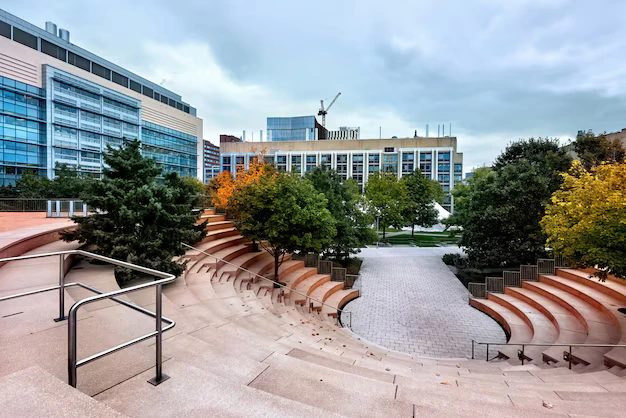
Fee Structure and Costs to Study MBBS in Malta 2025-26
MBBS in Malta: Fee Structure Overview
| Expense | University of Malta (Approx.) | American University of Malta (Approx.) | Cost in INR (Approx.) |
|---|---|---|---|
| Annual Tuition Fees | €15,000 – €25,000 | €18,000 – €28,000 | ₹13,00,000 – ₹24,00,000 |
| Accommodation (On-Campus) | €5,400 – €9,600/year | €5,400 – €9,600/year | ₹4,68,000 – ₹8,32,000 |
| Accommodation (Off-Campus) | Varies by location | Varies by location | ₹5,00,000 – ₹10,00,000/year |
| Living Expenses | €2,400 – €4,800/year | €2,400 – €4,800/year | ₹2,00,000 – ₹4,00,000 |
| Health Insurance (Annual) | €400 – €800 | €400 – €800 | ₹33,000 – ₹66,000 |
| Books and Study Materials | €600 – €1,000/year | €600 – €1,000/year | ₹50,000 – ₹83,000 |
| Total Estimated Annual Cost | €23,800 – €41,200 | €27,800 – €44,600 | ₹20,60,000 – ₹37,20,000 |
Additional Costs for International Students
| Additional Expenses | Estimated Cost (USD) | Estimated Cost (INR) |
|---|---|---|
| Visa Processing Fees | $100 – $150 | ₹8,000 – ₹12,000 |
| Flight Tickets (One-Way) | $500 – $1,000 | ₹40,000 – ₹80,000 |
| Residency Permit (Annual) | $200 – $300 | ₹16,000 – ₹24,000 |
| Medical Checkups and Vaccines | $100 – $200 | ₹8,000 – ₹16,000 |
| Student Registration Fees | $300 – $500 | ₹24,000 – ₹40,000 |
Total Estimated Cost Range for MBBS in Malta (5 Years)
| University | Total Cost (5 Years) | Approx. INR (5 Years) |
|---|---|---|
| University of Malta | €1,19,000 – €2,06,000 | ₹1,02,00,000 – ₹1,77,00,000 |
| American University of Malta | €1,39,000 – €2,23,000 | ₹1,20,00,000 – ₹1,92,00,000 |
Want To Study MBBS in Malta?
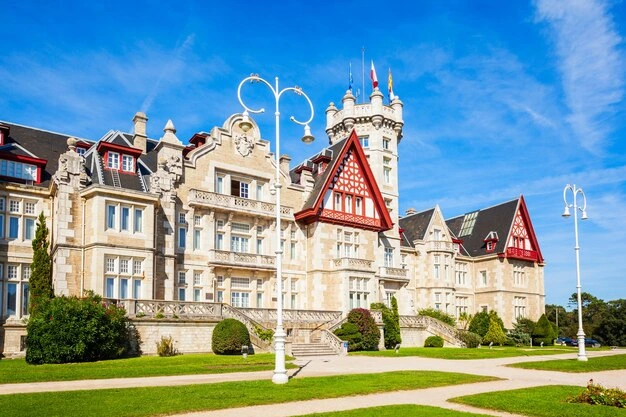
Top Ranked Medical Colleges in Malta to Study MBBS 2025-26
| Rank | University | Total MBBS Tuition Fees (Approx. INR) |
|---|---|---|
| 1 | University of Malta | ₹44,00,000 – ₹52,80,000 |
| 2 | American University of Malta | ₹44,00,000 – ₹66,00,000 |
| 3 | European School of Medicine, Malta | ₹66,00,000 – ₹88,00,000 |
| 4 | Malta College of Medicine & Surgery | ₹44,00,000 – ₹66,00,000 |
| 5 | SACEM Malta Medical School | ₹39,60,000 – ₹44,00,000 |
| 6 | St. Martin’s Institute of Higher Education | ₹22,00,000 – ₹35,20,000 |
| 7 | Global College Malta | ₹22,00,000 – ₹44,00,000 |
| 8 | L-Università ta’ Malta | ₹26,40,000 – ₹35,20,000 |
| 9 | MCAST (Malta College of Arts, Science & Technology) | ₹2,20,000 – ₹11,00,000 |
Want To Study MBBS in Malta?
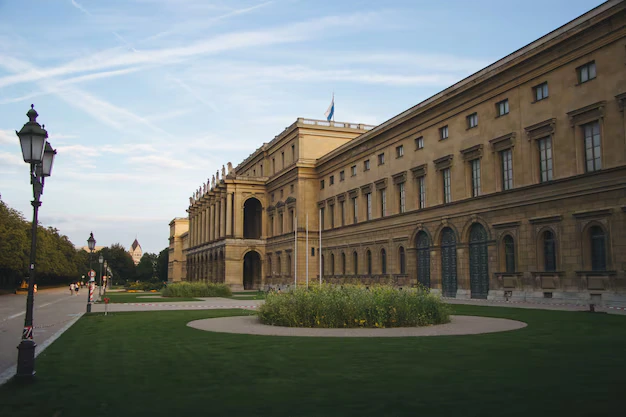
Advantages of Studying MBBS in Malta 2025-26
High Standard of Medical Education in Malta:
- Malta provides an excellent quality of medical education, aligning with European standards.
- Medical schools in Malta offer a comprehensive curriculum, combining theoretical knowledge with practical clinical training.
- Students pursuing their MBBS course in Malta benefit from small class sizes, ensuring personalized attention.
Globally Recognized MBBS Degree from Malta:
- A MBBS degree from Malta is globally recognized, making it easier for international students to pursue careers worldwide.
- The University of Malta and other medical universities in Malta have accreditations from WHO, NMC, and Malta Medical Council.
- Graduates of MBBS in Malta can apply for post-graduation programs in many countries.
Affordable Tuition Fees for MBBS in Malta:
- Malta offers competitive tuition fees for MBBS programs, making it a cost-effective option for Indian students.
- The cost of studying MBBS in Malta is lower compared to other European countries.
- Scholarships are available for deserving students, reducing the overall financial burden.
Advanced Research Facilities in Malta:
- Malta medical schools are equipped with advanced research facilities, providing students with opportunities for cutting-edge research.
- Students pursuing medical studies in Malta have access to state-of-the-art labs and research centers.
- This environment allows students to gain hands-on experience in the field of medicine.
Cultural Fit for Indian Students in Malta:
- Malta is the island known for its rich cultural heritage, making it easier for Indian students to adapt.
- Malta for Indian students 2025 offers a safe and friendly environment, enhancing the student experience.
- The temperature range in Malta is moderate, with dry summers and mild winters, providing a comfortable climate for international students.
Want To Study MBBS in Malta?
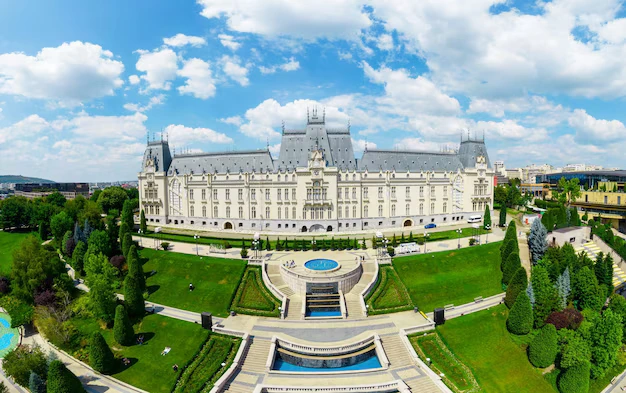
Course Details and Curriculum of Studying MBBS in Malta 2025-26
MBBS Curriculum and Structure in Malta
| Phase | Years | Focus Area | Key Subjects/Modules | Training/Practical Exposure |
|---|---|---|---|---|
| Phase 1 | Year 1-2 | Pre-Clinical Studies | Anatomy, Physiology, Biochemistry, Microbiology | Basic lab sessions, dissections, and practical anatomy |
| Phase 2 | Year 3-4 | Clinical Foundation & Training | General Medicine, Surgery, Community Medicine, Pediatrics | Introduction to clinical rotations and patient interactions |
| Phase 3 | Year 5 | Advanced Clinical Training | Internal Medicine, Surgery, Obstetrics & Gynecology, Electives | Intensive clinical rotations in specialized fields |
| Phase 4 | Year 6 | Internship/Practical Training | General Medicine, Surgery, Pediatrics, Emergency Medicine | Supervised practice in hospitals and community health centers |
Duration of MBBS Program in Malta
- The duration of MBBS program in Malta is 5 years, followed by a 1-year internship.
- This 5-year course includes 3 years of pre-clinical studies and 2 years of clinical training.
- The internship year allows students to gain practical experience under supervision in hospitals.
- This program structure prepares students for medical practice and further specialization.
- The duration of MBBS ensures students pursuing medical studies receive thorough training in clinical skills.
Academic Support Services in Malta
- Malta medical schools offer robust academic support services for international students.
- These include tutoring, mentorship programs, and access to digital libraries.
- Students should make sure to utilize study groups and academic counseling for better performance.
- Support services help students manage exam preparations and navigate the course structure.
- Counseling services are also available to assist with academic stress and personal challenges.
Research and Laboratory Facilities for MBBS Students in Malta
- Medical universities in Malta provide state-of-the-art laboratory facilities for MBBS students.
- These include anatomy labs, biochemistry labs, and access to clinical research projects.
- Research facilities encourage students pursuing MBBS to engage in medical research.
- Laboratory sessions are integrated into the curriculum, providing hands-on experience in biomedical sciences.
- Advanced research opportunities are available through partnerships with international institutions.
Online Learning Resources and Platforms for MBBS Students in Malta
- Online learning platforms support MBBS students in Malta, offering digital lectures and resources.
- These platforms provide access to recorded sessions, e-books, and medical journals.
- International students can benefit from remote learning modules during early academic years.
- Students must apply online for access to university-provided digital libraries.
- Virtual classes and interactive quizzes help reinforce theoretical knowledge outside the classroom.
Use of Technology in Medical Education in Malta
- Malta’s medical education system integrates modern technology into MBBS training.
- Simulation labs and virtual anatomy tools help students understand complex concepts.
- The use of digital diagnostic tools prepares students for real-world medical practice.
- Online platforms and e-learning resources are essential parts of the MBBS program in Malta.
- Technology enhances interactive learning and keeps students updated with the latest developments in medicine.
Want To Study MBBS in Malta?
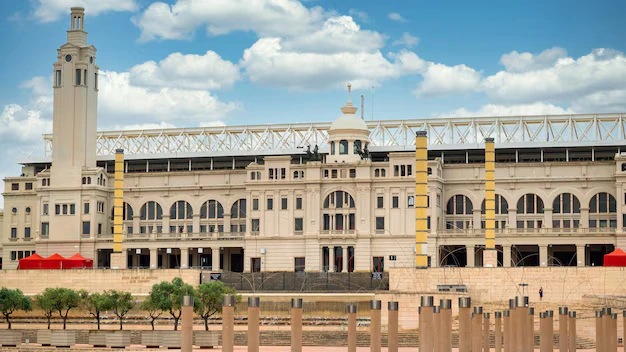
Studying MBBS in Malta Syllabus
MBBS in Malta Syllabus 2025
| Semester | Subjects/Modules |
|---|---|
| Semester 1 | Anatomy, Physiology, Biochemistry |
| Semester 2 | Genetics, Histology, Embryology |
| Semester 3 | Pathology, Microbiology, Pharmacology |
| Semester 4 | Immunology, Forensic Medicine, Clinical Skills |
| Semester 5 | Community Medicine, Internal Medicine |
| Semester 6 | Surgery, Obstetrics & Gynecology, Psychiatry |
| Semester 7 | Pediatrics, Orthopedics, Dermatology |
| Semester 8 | Emergency Medicine, Radiology, ENT |
| Semester 9 | Electives, Cardiology, Neurology |
| Semester 10 | Comprehensive Clinical Skills, Revision |
| Semester 11 & 12 | Internship: General Medicine, Surgery, Pediatrics, OB-GYN |
MBBS Internship Structure and Details in Malta
- Duration: The MBBS internship in Malta typically lasts 1 year, following the 5-year academic program. It is a mandatory part of the curriculum.
- Rotations: The internship includes rotations through key departments such as Internal Medicine, Surgery, Pediatrics, Obstetrics & Gynecology, and Emergency Medicine.
- Supervision: Students must work under the supervision of experienced medical professionals to ensure hands-on training and patient care exposure.
- Assessment: Throughout the internship, medical students are evaluated on their clinical skills, patient management, and professional behavior.
Licensing Exams after MBBS in Malta
- Eligibility: After completing the MBBS course in Malta, students can appear for licensing exams required to practice medicine in Malta or other countries.
- MCC and EU Licenses: Graduates can pursue licenses such as the Malta Medical Council (MMC) license or EU-recognized exams, allowing them to practice across Europe.
- USMLE and PLAB: For students seeking to practice in the USA or UK, exams like USMLE (United States Medical Licensing Examination) and PLAB (Professional and Linguistic Assessments Board) are options.
- Preparation Programs: Many universities in Malta offer preparatory courses to help students succeed in these licensing exams.
Ethical Practices in Medical Education in Malta
- Focus on Ethics: Malta medical programs emphasize ethical practices in clinical care and patient interactions.
- Curriculum Integration: Ethics is integrated into the MBBS syllabus, covering topics like patient confidentiality, medical malpractice, and doctor-patient relationships.
- Workshops: Students pursuing MBBS in Malta attend workshops and simulation sessions to better understand ethical dilemmas in medicine.
- Research Ethics: For students interested in research, universities in Malta provide guidelines on ethical research practices and informed consent.
Environmental Sustainability in Medical Universities in Malta
- Green Initiatives: Medical schools in Malta incorporate environmental sustainability into their campus operations and research.
- Sustainable Facilities: Universities in Malta prioritize energy-efficient laboratories and research centers to reduce their carbon footprint.
- Curriculum: The MBBS program in Malta includes topics on environmental health and sustainable practices in healthcare.
- Student Engagement: Medical students participate in environmental projects and community programs aimed at promoting sustainability in the field of medicine.
- Global Partnerships: Malta medical schools collaborate with international bodies on sustainable medical practices and climate-responsive healthcare initiatives.
Want To Study MBBS in Malta?

Opportunities and Career Prospects After Studying MBBS in Malta 2025-26
Studying MBBS in Malta opens a range of career opportunities for international students, especially Indian students. With a globally recognized MBBS degree, students gain access to advanced medical programs and career paths. Malta’s strong medical education infrastructure and student-friendly environment make it a suitable choice for those seeking both academic growth and professional success.
Career Opportunities After MBBS in Malta
- Malta offers diverse career opportunities in the field of medicine, including roles in hospitals, private clinics, and research institutions.
- Medical students can specialize in fields like Cardiology, Neurology, and Pediatrics, which are highly sought after in Malta.
- The Malta Medical Council supports graduates seeking to practice medicine in Malta through streamlined licensing processes.
- Indian students often explore career options in Malta, as it provides a gateway to practice in the EU and UK.
Higher Studies After MBBS in Malta
- Graduates of MBBS in Malta can pursue postgraduate programs like MD or MS in medical universities in Malta and other European countries.
- The University of Malta and the American University of Malta offer advanced medical programs for further specialization.
- Indian students may also consider higher studies in fields of medicine like Oncology, Radiology, and Surgery to enhance their career prospects.
- Malta provides easy access to research opportunities, encouraging students to contribute to the global medical field.
Licensing and Practice in Malta
- To practice medicine in Malta, graduates must pass the licensing exams conducted by the Malta Medical Council.
- The process includes clinical assessments and interviews, ensuring students meet the criterion for medical practice.
- Malta is the island that provides a unique opportunity for MBBS graduates to practice in European Union countries after obtaining the license.
- Medical students from Malta also have the option to appear for international exams like USMLE and PLAB for the USA and UK.
Part-Time Work Opportunities for MBBS Students in Malta
- Malta allows international students to work part-time during their MBBS program to support their living expenses.
- Students must apply for a work permit alongside their student visa to be eligible for part-time jobs.
- Job opportunities include roles as teaching assistants in medical colleges of Malta or positions in research projects.
- This flexibility in Malta offers a balanced way for students pursuing MBBS to gain practical experience while studying.
Post-MBBS Job Placement Services
- Many universities in Malta, including the University of Malta, offer job placement services to medical graduates.
- These services help students find internships, residencies, and full-time positions in top hospitals.
- Malta has collaborations with medical institutions across Europe, facilitating international placements for MBBS students.
- Indian students benefit from these placement services, ensuring a smoother transition into the professional field after their MBBS course.
Alumni Network for MBBS Graduates from Malta
- The University of Malta and other medical schools in Malta have strong alumni networks that support graduates in their career journey.
- Alumni networks provide mentorship and guidance for students looking to pursue MBBS study or start a medical practice in Malta.
- These networks help students from various countries, including Indian students, to connect with professionals and experts in the field of medicine.
- Malta’s alumni are often involved in community healthcare, research, and international collaborations.
Alumni Success Stories
- Graduates from the American University of Malta have gone on to establish successful practices in Malta and across Europe.
- Many Indian students who studied MBBS in Malta have secured positions in renowned hospitals in the EU.
- Alumni success stories often highlight the benefits of studying medicine in Malta, including global exposure and hands-on training.
- Medical colleges in Malta pride themselves on producing graduates who excel in clinical skills and research.
Common Challenges Faced by International MBBS Students and How to Overcome Them
- Cultural Adaptation: Students need time to adjust to the culture and lifestyle in Malta. Engaging in student clubs and community events can help.
- Financial Planning: Managing the cost of living in Malta alongside tuition fees can be challenging. Students should make sure to apply for scholarships and explore part-time work opportunities.
- Language Barriers: While Malta offers courses in English, students may need to learn basic Maltese for better interaction with locals.
- Academic Rigor: The MBBS program in Malta is demanding, requiring dedication and time management. Students pursuing medical studies should seek academic support from their universities.
- Visa and Work Permits: The application process for a student visa can be complex. Students must apply early and ensure they meet all requirements.
Want To Study MBBS in Malta?

Studying MBBS in Malta vs MBBS in India 2025-26
| Criteria | MBBS in Malta | MBBS in India |
|---|---|---|
| Quality of Education | High-quality education with a focus on clinical training and advanced medical practices. | Education quality varies; top colleges offer good training, but practical exposure can differ significantly between institutions. |
| Recognition and Accreditation | Recognized by WHO, Malta Medical Council, NMC (National Medical Commission of India), and globally. | Recognized by the National Medical Commission (NMC) and WHO. |
| Multicultural Exposure | Offers a multicultural environment with international students from various countries, enhancing global exposure. | Limited multicultural exposure, as most students are Indian; the focus is on domestic healthcare needs. |
| Clinical Experience | Access to European healthcare systems with opportunities for clinical exposure in Malta and other EU countries. | Clinical exposure varies widely; top-tier colleges offer better training, while others may have limited facilities. |
| Post-Graduation Opportunities | Easier access to post-graduate programs in the UK, Germany, and other EU countries. | Strong opportunities within India for postgraduate medical education but limited global access without additional exams. |
| Licensing Requirements | Graduates need to clear the FMGE to practice in India but can practice in other EU countries without additional exams. | Direct licensing in India after graduation; need to pass USMLE or PLAB for practicing in the US or UK. |
| Language of Instruction | Courses are taught in English, making it accessible for Indian students without a language barrier. | Courses are also taught in English, with regional language components for communication with patients in local settings. |
| Cultural and Social Environment | Offers a student-friendly and safe environment, allowing students to adapt easily to the European lifestyle. | Culturally familiar environment for Indian students, making the transition to college life smoother. |
Want To Study MBBS in Malta?

Studying MBBS in Malta vs MBBS in Other Countries 2025-26
Why MBBS in Malta and Not Other Countries
- Quality of Education: Malta offers a robust MBBS program with a curriculum that meets European standards, making it a preferred choice for those seeking a high-quality medical education. The University of Malta is a prominent institution providing medicine in Malta.
- Duration of MBBS: Unlike many countries with 6-year programs, Malta is the 5-year option for an MBBS degree, allowing students to complete their studies faster. This can be particularly advantageous for those looking to join the workforce sooner.
- Language of Instruction: The MBBS program in Malta is taught in English, making it accessible for international students and especially appealing for Indian students who are fluent in English.
- Career Opportunities: Graduates from medical schools in Malta have the opportunity to work across Europe due to the recognition of their degrees by the Malta Medical Council and other European bodies.
- International Recognition: A degree from universities in Malta like the American University of Malta is recognized globally, providing students with a competitive edge in the global job market.
Comparison of MBBS in Malta to Other MBBS Abroad Countries
Criteria MBBS in Malta MBBS in the UK MBBS in Russia MBBS in Ukraine MBBS in India Duration 5 years 5-6 years 6 years 6 years 5.5 years Medium of Instruction English English English/Russian English/Ukrainian English/Regional Languages Tuition Fee EUR 25,000 – 35,000/year EUR 35,000 – 50,000/year EUR 3,000 – 6,000/year EUR 3,500 – 7,000/year EUR 8,000 – 15,000/year (INR 7-14 lakh) Cost of Living EUR 800 – 1,200/month EUR 1,200 – 1,800/month EUR 300 – 500/month EUR 300 – 600/month EUR 250 – 500/month Climate Malta has dry summers, mild winters Temperate, cold winters Cold, harsh winters Cold, harsh winters Hot summers, mild to cold winters Recognition Recognized across Europe Globally recognized MCI, WHO recognized MCI, WHO recognized MCI, WHO recognized Post-Graduation Work Easier access to the EU job market Access to UK/European market Requires additional exams for practice in other countries Requires additional exams for practice in other countries Practice in India or abroad with licensing exams Student Visa Process Students must apply for a student visa Complex but structured Easier compared to Western countries Easier compared to Western countries No visa requirement for Indian citizens
Want To Study MBBS in Malta?

Scholarships and Financial Aids to Study MBBS in Malta 2025-26
Scholarships in MBBS in Malta
For students taking admission to MBBS in Malta, financial support can significantly ease the burden of education costs. The Malta fees structure for medical programs, including MBBS, requires a substantial amount of tuition fees, often ranging between EUR 25,000 to 35,000 per year. However, there are several scholarship options available:
- Merit-based Scholarships: Offered by universities like the University of Malta, these scholarships are awarded to students with outstanding academic records. Applicants must meet specific GPA requirements and show a high standard of academic achievement.
- Government Scholarships: The Maltese government provides scholarships for international students through programs like the Malta Government Scholarship Scheme (MGSS). This program supports both EU and non-EU students pursuing higher education, including program in Malta across fields like medicine.
- University-specific Grants: Institutions such as the American University of Malta offer various grants to assist students financially. These may be based on academic merit, financial need, or research interests related to the program in Malta across different disciplines.
- Scholarships for Indian Students: Malta provides specific opportunities for Indian students through partnerships and exchange programs. Some of these scholarships are tailored to cover a part of the fees structure for medical degree programs.
Financial Aids to Study MBBS in Malta
Studying in Malta can be financially demanding due to its tuition fees and living costs. While Malta can be relatively expensive, several financial aid options are available to ease the burden:
- Student Loans: International students, including those from India, can access loans specifically designed for education abroad. These loans often cover tuition, accommodation, and other living expenses.
- Work-Study Programs: Students pursuing medical studies in Malta may have the option to work part-time while studying, helping them to manage their expenses.
- Grants and Bursaries: Some universities in Malta provide need-based grants to students facing financial difficulties. These aids can supplement scholarships in MBBS in Malta, reducing the total educational expenses.
- Post in the Malta Medical System: After completing their studies, students may also secure positions in the Malta medical system, allowing them to gain practical experience while earning an income, which can be helpful in repaying any education loans.
How to Apply for Scholarship and Financial Aids to Study MBBS in Malta
Students mentioned below before taking admission should follow a systematic process when applying for scholarships and financial aid:
- Eligibility Assessment: Before applying, students must ensure they meet the eligibility criteria for each scholarship. This often includes academic qualifications, proof of admission, and specific criteria set by the scholarship provider.
- Application Timeline: It’s crucial to keep track of deadlines. Most scholarship applications must be submitted before the start of the academic year.
- Documentation Requirements: Prepare the necessary documents, including academic transcripts, letters of recommendation, and a detailed statement of purpose outlining the reasons for choosing an MBBS course in Malta. Students need to confirm that all documents are in order before submission.
- Submission Process: Applications are typically submitted online through the university’s official website or the scholarship provider’s portal. For government scholarships, applications are submitted through the Malta Scholarships portal.
- Interviews and Assessment: Some scholarships require an interview as part of the selection process. Students should be prepared to discuss their academic goals and reasons for choosing Malta for medical studies.
Want To Study MBBS in Malta?

MBBS Options for Indian Students Other Than Studying MBBS in Malta 2025
Popular Countries for MBBS Study Besides Malta
-
-
Russia: Offers affordable MBBS courses with globally recognized degrees. Many Indian students choose Russia for its low tuition and ease of admission process.
-
Ukraine: Known for high-quality medical universities offering MBBS programs in English. Ukraine provides a balance of affordable fees and diverse international exposure.
-
Philippines: Offers US-based medical education with high success rates in USMLE exams. Programs are taught in English and provide a familiar climate for Indian students.
-
Kazakhstan: A popular choice for Indian students due to affordable MBBS programs and shorter course durations. Kazakhstan offers English-medium instruction and clinical practice opportunities.
-
Bangladesh: Provides a low-cost MBBS program with a curriculum similar to India’s, making it ideal for Indian students. Programs are in English, and the cultural similarities ease the transition.
-
-
Feasible Options for MBBS Study in Malta
Malta has been working to attract international students, including those from India, with structured medical programs. Here are some factors that make Malta a feasible option for MBBS study:
-
Duration of MBBS in Malta: The program typically lasts 5 years, allowing students to complete their studies faster compared to many other countries that offer a 6-year MBBS course.
-
Malta fees structure for medical programs: While the cost may be higher than in Eastern Europe, it is competitive with Western nations. Students need to be prepared for the fees structure for medical degree programs, which include tuition and additional living costs.
-
Climate and Environment: Malta is around 12°C during the winter months, offering a moderate climate compared to the harsh winters in some Eastern European countries. This can be a significant advantage for those seeking a comfortable environment for their studies.
-
BDS or MBBS in Malta: Students can choose between BDS or MBBS in Malta, depending on their career goals in dentistry or general medicine. Both options offer solid professional pathways within the Malta medical system and beyond.
-
Career Opportunities: Graduates can secure a post in the Malta medical system, gaining valuable experience and the opportunity to work across the world. The European recognition of the degree provides added flexibility in pursuing careers throughout the EU.
Pros and Cons of Each Destination
Country Pros Cons Malta Shorter duration of MBBS, access to EU job market, moderate climate. Higher fees structure for medical degree, relatively high living expenses. Russia Affordable tuition, strong clinical training focus, large Indian student community. Requires learning Russian for clinical practice, extremely cold winters. Ukraine Low tuition fees, international exposure, good clinical training. Political instability, cultural adaptation challenges. Philippines English-medium instruction, similar climate to India, affordable living. Longer and complex licensing process for practice in India. United Kingdom High-standard education, globally recognized degrees, access to prestigious hospitals. Very high substantial amount of tuition fees and living costs.
-
Want To Study MBBS in Malta?

Living Cost While You Study MBBS in Malta 2025-26
Lifestyle, Culture, and Student Life in Malta
- Malta has been working to create a welcoming environment for international students, making it an attractive destination for those pursuing MBBS.
- The lifestyle in Malta blends modern amenities with rich cultural traditions, offering a unique experience for students. This island nation has a diverse community, with international students from various countries.
- Student life in Malta includes a mix of academic focus and leisure activities, with various clubs, events, and cultural festivals that help students integrate.
- The program in Malta across different universities emphasizes a balanced life, encouraging participation in extracurricular activities alongside studies.
- The range in Malta is around moderate, providing students with access to various entertainment, dining, and recreational activities without the extremes seen in larger European cities.
Safety and Accommodation for International Students in Malta
- Malta is known for being one of the safest countries in Europe, making it ideal for international students taking admission to MBBS programs.
- Safety and accommodation options are diverse, ranging from university-provided dormitories to private rentals. Students are advised to choose accommodations near their university to reduce commute times and costs.
- University campuses often provide support for finding suitable housing, and the local community is generally welcoming toward international students.
- Malta is around 12°C during the winter, which means housing does not require extensive heating, thus keeping utility costs reasonable.
Table: Comparative Living Costs for Medical Students in Various Countries
| Country | Monthly Accommodation | Food & Groceries | Transport | Leisure & Miscellaneous | Total Monthly Living Cost Estimate |
|---|---|---|---|---|---|
| Malta | EUR 500 – 800 | EUR 200 – 300 | EUR 40 – 60 | EUR 150 – 250 | EUR 800 – 1,200 |
| Russia | EUR 150 – 300 | EUR 100 – 150 | EUR 10 – 30 | EUR 50 – 100 | EUR 300 – 500 |
| Ukraine | EUR 150 – 300 | EUR 100 – 150 | EUR 10 – 30 | EUR 50 – 100 | EUR 300 – 600 |
| Philippines | EUR 100 – 250 | EUR 100 – 150 | EUR 10 – 20 | EUR 50 – 100 | EUR 300 – 500 |
| U K | EUR 700 – 1,200 | EUR 250 – 400 | EUR 60 – 100 | EUR 200 – 400 | EUR 1,200 – 2,100 |
Language and Communication for International Students in Malta
- English is widely spoken in Malta, making it easier for students to communicate and adapt to their new environment.
- While studying MBBS in Malta, students can comfortably interact with locals, peers, and faculty members in English, easing their transition.
- Universities also offer language support services for those who may need to improve their English proficiency.
Support Services for International Students in Malta
- Malta has been working to ensure that international students have access to comprehensive support services, from academic counseling to personal well-being.
- Universities provide guidance on fees structure for medical degree programs, visa support, and help with adjusting to life in Malta.
- Mentorship programs and peer groups are often available to help students navigate academic challenges and integrate into the community.
Extracurricular Activities and Student Clubs in Malta
- Universities in Malta offer various extracurricular activities and clubs that cater to diverse interests, including sports, arts, and cultural groups.
- Students in Malta across the world can join international clubs that celebrate different cultures and traditions, fostering a sense of belonging.
- Participation in these activities allows students to build networks, learn new skills, and make their study experience more enriching.
Cultural Adaptation and Support Services
- Malta’s rich history and vibrant culture can initially be overwhelming for new students, but the country offers multiple resources to help with cultural adaptation.
- International offices at universities organize orientation programs, city tours, and cultural exchange events, helping students become familiar with Maltese customs and traditions.
- Support services for international students include psychological counseling, cultural workshops, and events that focus on helping students adapt to life on the island of Malta.
- The moderate climate, Malta is around 12°C during winter, and a friendly local community contribute positively to the adaptation process, making Malta a welcoming place for students pursuing their MBBS journey.
Want To Study MBBS in Malta?

Health and Safety While Studying MBBS in Malta
Healthcare Facilities for International Students in Malta
- Malta has been working to provide comprehensive healthcare services, ensuring that international students have access to quality medical care during their studies.
- Students taking admission to MBBS programs in Malta have access to public and private healthcare services, including hospitals and clinics that are well-equipped for both routine care and emergencies.
- Many universities collaborate with nearby hospitals, providing students with convenient access to medical services, including for regular check-ups and emergencies.
- Program in Malta across various universities often includes health awareness programs and sessions on maintaining a healthy lifestyle while studying.
Health Insurance Requirements for International Students in Malta
- Health insurance is mandatory for all international students taking admission to MBBS in Malta. This ensures that they are covered for any medical emergencies or hospitalization during their stay.
- Students are advised to arrange insurance before arrival, as it is required for visa processing. Insurance should cover doctor visits, hospitalization, and emergency services.
- Universities may provide recommendations for insurance providers, or students can opt for international plans that are accepted in Malta.
- The insurance must be valid for the entire duration of MBBS in Malta, ensuring continuous coverage throughout their studies.
Vaccination and Medical Check-up Requirements for Students in Malta
- Vaccinations are required for international students to ensure the health and safety of the community. Common vaccinations include MMR (Measles, Mumps, Rubella), Hepatitis B, and Tuberculosis tests.
- Students may also need to undergo a medical check-up prior to arrival, as part of the visa or university requirements.
- A full medical history may be requested mentioned below before taking admission to ensure students meet the health criteria for taking admission to MBBS.
- It’s recommended that students carry their vaccination records and any relevant medical documents with them when traveling to Malta.
Safety Tips and Resources for International Students in Malta
- Malta is known for its safety, with low crime rates making it a secure environment for students. However, it’s still important to stay aware of surroundings and follow general safety practices.
- Students should familiarize themselves with local emergency contact numbers and the nearest hospital or medical facility.
- Universities often offer resources, such as workshops on safety and security, to help students adapt to life in Malta.
- It’s advisable to always have a local contact, such as a university advisor, for emergencies.
Mental Health and Counseling Services for Students in Malta
- Universities in Malta provide mental health and counseling services to support students dealing with stress, anxiety, or homesickness.
- Counseling centers on campus offer confidential sessions, group therapy, and workshops on managing academic pressure.
- Access to these services is crucial, especially for international students adjusting to a new culture and academic environment.
- Support services aim to create a balanced and healthy study experience, addressing both academic and personal challenges.
Pre-Departure Checklist for Studying MBBS in Malta
- Students must ensure that they have all necessary documentation, such as acceptance letters, valid passports, and health insurance policies.
- Packing appropriate clothing is essential, considering that Malta is around 12°C during the winter months, so some warm clothing will be needed.
- Arrange accommodation in advance to avoid last-minute issues. The range in Malta is around moderate, but costs can vary depending on location and type of housing.
- Check university requirements for medical check-up and vaccination documentation mentioned below before taking admission to ensure compliance.
Orientation Programs for International Students in Malta
- Universities offer orientation programs designed to help new students settle into their life in Malta. These programs cover essential information about academics, living arrangements, and cultural norms.
- Orientation programs include campus tours, information sessions about the fees structure for medical degree programs, and guidance on using local transportation.
- These sessions are also an opportunity to meet peers and join student clubs, helping students build a community right from the start.
- Participation in orientation is highly recommended for a smooth transition into student life in Malta and to understand the program in Malta across different areas.
Want To Study MBBS in Malta?

Financial Planning to Study MBBS in Malta
Scholarships and Financial Aid
- Malta has been working to make higher education accessible through various scholarship options and financial aid programs. These can help offset the substantial amount of tuition fees required for taking admission to MBBS programs.
- Scholarships are available from Maltese universities, the Maltese government, and international scholarship organizations. These include merit-based and need-based scholarships that can help reduce the overall cost of education.
- Some scholarships are specifically aimed at international students, offering partial fee waivers or stipends to help cover living expenses in Malta.
- To qualify for these scholarships, students must meet academic criteria and complete the application process mentioned below before taking admission.
- Students are advised to apply for scholarships early, as many have deadlines that precede the start of the academic year.
Part-Time Work Opportunities for MBBS Students
- International students pursuing MBBS in Malta are allowed to work part-time during their studies, which can help manage living expenses.
- The government permits a limited number of working hours per week, allowing students to gain work experience while also supporting their financial needs.
- Common job options include roles in retail, hospitality, or on-campus positions, which are flexible and can be managed alongside academic commitments.
- Malta can be relatively expensive, so part-time work is an important way for students to earn additional income and reduce their reliance on savings.
- Working part-time also offers valuable cultural exposure, allowing students to interact with locals and gain a better understanding of Malta across the world.
Budgeting Tips for Indian Students
Proper financial planning is essential for managing the Malta fees structure for medical programs and daily living expenses. Here are some tips to help Indian students budget effectively:
- Accommodation: Consider university housing or shared apartments to reduce accommodation costs. While the range in Malta is around moderate for housing, shared living can significantly lower expenses.
- Food and Groceries: Plan meals and shop at local markets to save on food expenses. Cooking at home can help students avoid high costs at restaurants.
- Transport: Use student discounts on public transport. Malta’s public transport system is affordable and reliable, making it easy for students to commute.
- Monitor Spending: Use budgeting apps to track daily expenses and ensure that spending stays within the planned limits.
- Prepare for Seasonal Changes: Malta is around 12°C in winter, so investing in appropriate clothing for cooler months can prevent unexpected costs.
- Emergency Fund: Set aside some funds for emergencies or unforeseen expenses. This helps manage unexpected costs without disrupting the monthly budget.
Want To Study MBBS in Malta?

Frequently Asked Questions for Studying MBBS in Malta 2025-26
MBBS in Malta is typically a 5-year program. The shorter duration allows students to complete their studies faster than in many other countries offering 6-year programs.
MBBS in Malta is typically a 5-year program. The shorter duration allows students to complete their studies faster than in many other countries offering 6-year programs.
What is the application process for MBBS in Malta?
The application process for MBBS involves submitting academic transcripts, proof of English proficiency, and meeting the eligibility criteria mentioned below before taking admission. Students must apply through the university’s online portal.
How much is the mbbs in malta fees for Indian students in 2025?
The mbbs in malta fees structure includes tuition fees and living expenses. Indian students should be prepared for a substantial amount of tuition fees along with other costs such as accommodation and insurance.
What are the eligibility criteria for admission to MBBS in Malta?
Students need to confirm that they meet the eligibility criteria such as a high school diploma with a background in science. Medical students must have studied Biology, Chemistry, and Physics.
Can Indian students find scholarships for studying MBBS in Malta?
Yes, there are various scholarships available for malta for indian students 2025. These scholarships help offset the fees structure for medical degree programs, making MBBS study in Malta more affordable.
What is the cost of living in Malta for students pursuing MBBS?
The cost of living in Malta includes accommodation, food, and transportation. The range in malta is around EUR 800 to 1,200 per month, depending on lifestyle choices.
What career opportunities are available after completing MBBS in Malta?
Graduates can secure a post in the Malta medical system or pursue further studies and specialization. Malta medical council recognizes the degree, allowing students to gain work experience across the world.
Is BDS or MBBS in Malta a better choice for international students?
The choice between BDS or MBBS in Malta depends on the student’s interest in dentistry or general medicine. Both options offer quality education and good career prospects within the field of medicine.
What is covered in the mbbs syllabus in malta 2025?
The mbbs syllabus in malta 2025 includes both foundational courses and clinical training. Core subjects include Anatomy, Physiology, Biochemistry, Pharmacology, and Pathology, along with rotations in hospitals. The syllabus is designed to ensure that students gain practical and theoretical knowledge required for a successful medical career.
Which is the best medical college in malta for international students?
The best medical college in malta is often considered to be the University of Malta, known for its comprehensive MBBS program and state-of-the-art facilities. It provides a balanced approach to medical education, offering both theoretical instruction and clinical experience to students. The American University of Malta is also a popular choice for those seeking a quality education in medicine.
Quick Info
- Number of Universities
- 2 (University of Malta, Queen Mary University of London – Malta Campus)
- Recognition
- WHO, NMC (India), European Union
- Eligibility
- 50% in 12th (Physics, Chemistry, Biology), NEET for Indian students, IELTS/TOEFL required for non-native English speakers
- Course Duration
- 5-6 years (including clinical internship)
- Total Average Tuition Fees
- EUR 20,000 to 35,000 per year
- NEET
- Required for Indian students
- Intake
- September/October
- Medium of Teaching
- English
Admission Queries
Read the Experiences of Students after taking University Insight's Services
These stories are based on real-life student experiences with University Insights, designed to help students achieve their academic goals and pursue their overseas study plans. Take the leap and embark on your own incredible journey! Rooted in genuine accounts of those who trusted University Insights, these experiences illustrate how academic aspirations and international education goals can become reality. Step forward and begin your remarkable journey today.
Arjun P.
Malta
Priya S.
Malta
Rohit K.
Malta
Anjali R.
Malta
Siddharth M.
Malta
Nisha D.
Malta
Aakash V
Malta
Ritika P.
Malta
Vikas S.
Malta
Meera J.
Malta



